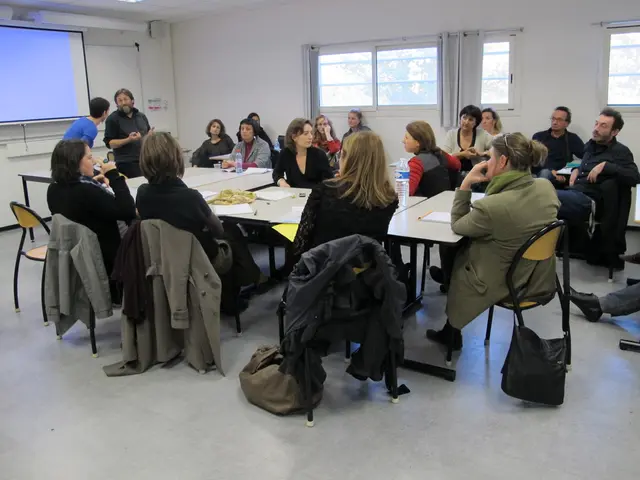Germany's Steel Industry Hopes for EU Nod on Subsidized Electricity Prices
The German steel industry, grappling with intense pressure, awaits a decision from the European Commission on subsidized lower industrial electricity prices. Meanwhile, Finance Minister Lars Klingbeil (SPD) and Economy Minister Katherina Reiche (CDU) are collaborating to provide concrete aid, with a target electricity price of five cents per kilowatt hour.
The steel sector's plight has put thousands of jobs at risk, prompting Jürgen Kerner, IG Metall's second chairman, to demand an industrial electricity price cap of five cents per kilowatt hour by January 1, 2026. The EU Commission's approval is crucial, as it has previously allowed direct state subsidies for lowering electricity prices for energy-intensive companies.
Klingbeil and Reiche, along with Labor Minister Barbara Bas (SPD), recently met with steel company representatives and trade unions to strategize for the upcoming 'Steel Summit' in the fall. Reiche is aiming to finalize negotiations with the EU Commission regarding the design of the industrial electricity price by the end of the year.
The German government's commitment to supporting the steel industry is clear, with a focus on protecting domestic steel in infrastructure investments and achieving a competitive electricity price. The industry eagerly awaits the EU Commission's decision on subsidized lower industrial electricity prices, which could significantly alleviate the sector's challenges.
Read also:
- Vancouver Canucks' family member claims a 'plot' to disown him unjustly
- Trump urged to abandon one-sided trade restrictions during a 'productive' conversation with Xi about the TikTok issue
- Chinese Rare-Earth Mining Endangers the Mekong River's Integrity
- Reliance, led by Ambani, and other entities are reportedly in negotiations with OpenAI to introduce the Stargate project, valued at half a trillion dollars, within India.








